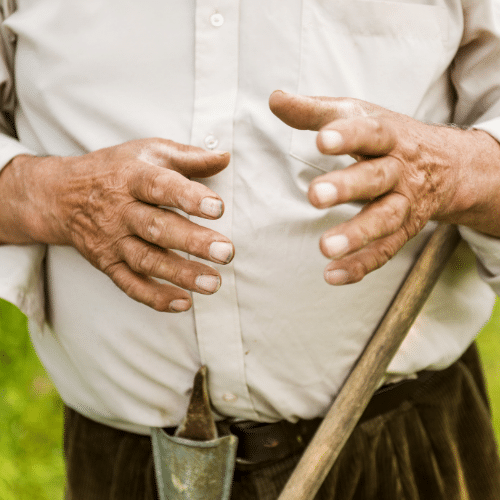If you were seriously injured, remember that it is crucial to choose the right law firm to represent your interests. We have been doing this for more than three decades, and have the resources you need to challenge any opponent.
Why Farmers Have Parkinson’s Disease

Farmers work long hours and often have to battle a number of environmental factors: drought, flooding, insects, rodents, and weeds. And though weeds may sound like the most harmless, they have the potential to choke out crops and cause yields to plummet. Certain weeds can also be toxic to livestock.
Unfortunately, popular herbicides still used by commercial farms have been connected to a significantly higher risk of Parkinson’s disease. Farmers continue to be disproportionately impacted by the toxic effects of the herbicide Paraquat. At The Ferraro Law Firm, we’re committed to helping our clients recover the compensation they’re owed—and if you or a loved one has developed Parkinson’s disease after exposure to Paraquat, you may be entitled to financial damages.
Table of Contents
What is Paraquat?
Paraquat is an herbicide, or weed killer. Although it’s still legal—and used—in the U.S., it’s available only for commercial use, which means that only those who are licensed and trained can apply it. Paraquat is harmful when it comes into contact with skin; going so far as to consume Paraquat can lead to severe health consequences or even death. Paraquat works by causing cellular death; and unfortunately, it doesn’t easily distinguish between plant cells and human brain cells.
Paraquat is sold under dozens of different brand names. Generally, if the name of the product includes some variation of the terms “para” or “quat,” there’s a good likelihood that it’s a Paraquat product.
Paraquat Exposure Causes Parkinson’s Disease
A recent study in Neurology has shown a clear association between pesticide exposure (particularly Paraquat exposure) and Parkinson’s disease. This study has gone so far as to identify the portion of the brain Paraquat damages—the substantia nigra pars compact. This part of the brain helps transmit dopamine to coordinate body movement; when cells die, motor function slows and the person affected begins to develop slowed or jerky movements, rigidity, and tremors.
Another study from 2006 found that patients who had been exposed to pesticides had around a 70 percent higher chance of being diagnosed with Parkinson’s.
Who’s at Risk of Paraquat Exposure
There are some professions and trades that are at far greater risk of encountering Paraquat weed killers than members of the general public. These include:
- Farmers
- Agricultural laborers
- Crop dusters
- Herbicide applicators and mixers
Because skin exposure increases health risks, backpack sprayer application methods increase exposure for farmers. However, even those trained in aerial applications are at risk of exposure to pesticides when exiting their crop duster. Any direct contact with Paraquat increases the risk of adverse health effects developing.
Additionally, anyone who works on an industrial farm may need to consider their proximity to Paraquat chemicals. Safety measures do not remove health risks for cognitive impairment such as Parkinson’s. These measures only reduce risks.
Paraquat is Under Legal Scrutiny
Paraquat was once widely used in the U.S. without restriction. Recently, this dangerous chemical has been classified as a restricted-use herbicide for commercial use only. But efforts to outlaw it in the U.S. have largely been unsuccessful, and the EPA isn’t empowered to take sweeping action to protect workers in the agricultural industry from occupational exposure to this toxic herbicide.
Many individuals who have been exposed to Paraquat have filed lawsuits in federal courts against the manufacturers, alleging that their negligence or failure to warn about the dangers of Paraquat led to their illness or a higher risk of developing Parkinson’s. And with the increasing number of studies connecting Paraquat with Parkinson’s, these lawsuits stand a good chance of holding companies accountable and recovering financial damages from those who have been impacted by Paraquat.
How does Paraquat affect the body?
Do you qualify for Paraquat compensation?
Is Paraquat the same as Agent Orange?






